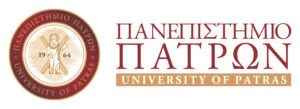The subject of Didactics of Computer Science and ICT or Computer Science Education and ICT Education is the study of the construction of knowledge and the development of technical and cognitive competences of students who use computers and are involved in Computer Science and its applications. These competences are primarily found in the context of problem solving using digital systems. Computer Science Education and ICT Education is developed around at least five areas of study:
- Teaching of Computer Science concepts (data, information, digital and information literacy, computational thinking, artificial intelligence, …)
- Teaching of general-purpose software
- Robotics education
- Teaching of computer technology (computer hardware, IoT)
In this context, Computer Science Education and ICT Education sets focus on the following areas:
- Content development: didactic transposition, TPCK, curriculum, educational resources, educational software
- Knowledge construction strategies (representations, cognitive obstacles, conceptual change, problem-solving processes) and teaching-leaning situations (didactic interactions, didactic contract, educational scenarios)
- Computer Science Teachers Professional Development: teachers’ attitudes and perceptions, organization of teaching interventions and school practices, formation of professional identity.
Selected Publications
- Misirli, A., & Komis, V. (2024). Computational Thinking in early childhood education: The impact of programming a tangible robot on developing debugging knowledge. Early Childhood Education Quarterly, 65, 4th Quarter 2023, 139-158. https://doi.org/10.1016/j.ecresq.2023.05.014
- Komis, V., Bachy, S., Goletti, O., Parriaux, G., Rafalska, M.,& Lavidas, K. (2022). Connaissances du contenu et connaissances technologiques des enseignants en Informatique en milieu francophone, Review of Science, Mathematics and ICT Education, 16(2), 105-133. https://doi.org/10.26220/rev.4080
- Theodoropoulou, I., Lavidas, K., & Komis, V. (2021). Results and prospects from the utilization of Educational Robotics in Greek Schools. Technology, Knowledge and Learning, https://doi.org/10.1007/s10758-021-09555-w
- Fessakis, G., Komis, V., Dimitrakopoulou, A., & Prantsoudi, S. (2019). Overview of the Computer Programming Learning Environments for primary education, Review of Science, Mathematics and ICT Education, 13 (1), 7-33.
- Nikolos, D., & Komis, V. (2015). Synchronization in Scratch: A Case Study with Education Science Students. Journal of Computers in Mathematics and Science Teaching, 34(2), 223-241. Chesapeake, VA: Association for the Advancement of Computing in Education (AACE).
- Lavidas, K., Komis, V., & Gialamas, V., (2013). Spreadsheets as cognitive tools: A study of the impact of spreadsheets on problem solving of math story problems, Education and Information Technologies, 18, 113-129 (https://doi.org/10.1007/s10639-011-9174-8)
- Κόμης, Β. (2005). Εισαγωγή στη Διδακτική της Πληροφορικής, Εκδόσεις Κλειδάριθμος, Αθήνα, ISBN 960-209-838-4.
- Κόμης, Β. (2004). Εισαγωγή στις εκπαιδευτικές εφαρμογές των Τεχνολογιών της Πληροφορίας και των Επικοινωνιών, 2η έκδοση, Εκδόσεις Νέων Τεχνολογιών, Αθήνα, ISBN 978-960-578-057-9.
